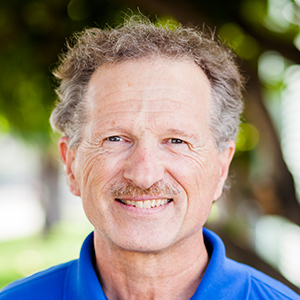Low standard test scores, serious budget crunches and more — our public schools face daunting challenges. But perhaps they face a deeper issue, one not being mentioned in recent public discussions: What if they aren’t really teaching our youth knowledge?
Today’s education is based upon the assumption that science gives us knowledge. But other disciplines give us (at best) “inferior knowledge,” or just preferences and opinions.

And today’s scientific orthodoxy is Darwinian and naturalistic, meaning all that’s real is natural, or material; there isn’t anything real that’s supernatural or immaterial. There’s no God, souls or minds, and so no real “mental states” — thoughts, beliefs, experiences, intentions, etc.
If that seems overstated, notice what Daniel Dennett, a leading philosopher of neuroscience at Tufts University, says. He admits that according to naturalistic evolution, the dominant scientific theory, brains and physical patterns of physical forces exist. Physical stuff (matter) is real, but things like mental states aren’t.
Yet when we do science, pay our taxes or watch a football game, it seems we really think, have beliefs and experience things. So, how can that be?
According to Dennett, all that’s going on is the interpretation of the behavior of “intentional systems,” like sophisticated chess-playing computers and people. While observing them, we try to interpret and predict their behavior. For instance, we might interpret a computer’s move in a game as “intending” to checkmate its opponent, whereas the human player “thinks” or “believes” she can escape by making a certain move. We just interpret their behaviors by how we conceive of (or talk about) their behaviors as mental states — but that’s all there’s to it. There are no real beliefs, thoughts or observations.
However, suppose a person comes here from a fourth-world country. She’ll need to get a concept of what a traffic light is and that she can cross the street on a green light, not red. To learn that, she’ll need experiences and thoughts of what these things are, and then form a concept of when it’s safe to cross a street.
So, for Darwinian evolution and naturalism, there’s a crucial problem here: How could anyone make observations and form concepts and interpretations? To do these seems to require we use the very mental things we’re told don’t exist.
Yet without real observations, we don’t seem able to do any scientific experiments. Without concepts, thoughts and beliefs, how could we even form, test and accept scientific theories?
Worse, how could we have knowledge if there aren’t real beliefs we can accept as true? We also need adequate evidence for our beliefs to count as knowledge. But with Darwinian, naturalistic science, evidence from experience seems impossible.
Now, maybe Michael Tye (a philosopher at the University of Texas at Austin) could reply that we do have mental states, yet these really are just something physical, like brain states, being conceived of as being mental. But, that won’t work — to even have concepts, we need real mental states to work with.
So, it seems the assumption upon which our education system is founded — that Darwinian evolutionary, naturalistic science uniquely gives us knowledge of the facts — cannot be true. And, Darwinian evolution also is mistaken, for on it we couldn’t know anything. Yet we do know many things — for instance, that we’re alive.
Therefore, real, immaterial mental states must exist. While this essay doesn’t prove it, it suggests something very important — supernaturalism isn’t far-fetched after all. Indeed, we can infer even more. If we can have real immaterial thoughts, experiences, beliefs and more, then it seems that there must be something immaterial that is real which can have and use them. That suggests that we have minds, even souls, that are real and non-physical. So, how then do we best explain their existence? Surely not from Darwinian evolution. Instead, it seems that this short study highly suggests that God exists and has made us in a way that we can have knowledge. I am reminded of what Solomon said: “To have knowledge, you must first have reverence for the Lord” (Prov. 1:7, GNT).
Thus, fixing our education system seems to involve, in part, a repudiation of naturalism and Darwinian, naturalistic science. For on it, we lose all knowledge whatsoever. But since we do know many things, that fact strongly suggests that God exists.
R. Scott Smith (M.A. ’95) is an associate professor of ethics and Christian apologetics in Biola’s master’s program in Christian apologetics. He holds a Ph.D. in religion and social ethics from the University of Southern California.
 Biola University
Biola University
.jpg)

